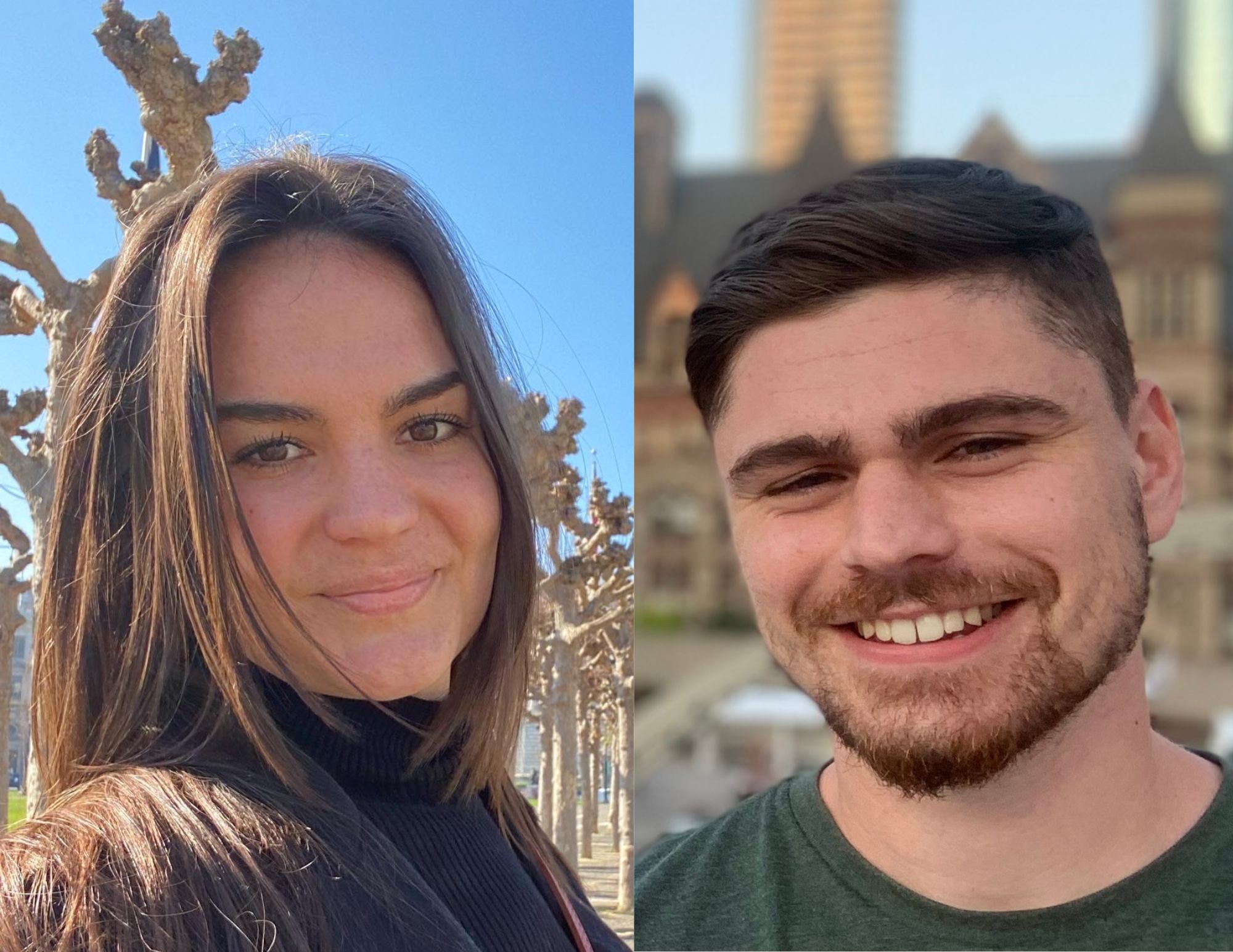UC Law SF Clinic Celebrates Legal Victory for Workers’ Rights

UC Law SF graduates Eileen Ollivier ’22 and Paul Huff ’22 played an important role in a case that has expanded workers’ rights in California.
Two recent UC Law SF graduates played a pivotal role in a case that is expected to make it easier for laid-off workers to obtain unemployment benefits in California.
More than two years after Paul Huff ’22 and Eileen Ollivier ‘22 helped a woman appeal the denial of her unemployment insurance claim, a California appeals court ruled she was entitled to those benefits, rejecting a former employer’s claim that she left her job voluntarily.
Huff and Ollivier first got involved in the case in the summer of 2020 when they joined the Workers’ Rights Clinic – Covid 19 Response at UC Law SF. The clinic was set up in the early days of the pandemic to help workers who lost their jobs. It also gave law students a chance to gain experience after many summer internships were cancelled due to office shutdowns.
Both first-year law students at the time, Huff and Ollivier did research, gathered evidence, and helped write a brief to appeal an administrative law judge (ALJ)’s denial of client Reena Johar’s claim. The California Unemployment Insurance Appeals Board (CUIAB) upheld the denial, refusing to consider new evidence and finding that Johar owed additional penalties for alleged unemployment fraud.
That’s when Professor Mai Linh Spencer, who co-supervised the summer clinic with Professor Miye Goishi, reached out to attorney Gary Garfinkle, who agreed to take the case pro bono. In September, the appeals court reversed the board’s decision and found Johar was entitled to unemployment insurance.
“It should benefit a lot of people because you’re facing a situation where many employers are looking for excuses to lay off people, similar to what happened here,” Garfinkle said.
The client, Johar, had taken a leave of absence from her home improvement sales job to care for a sick relative. After returning, she said, she stopped receiving work assignments and eventually applied for and received unemployment benefits. But the state later revoked those benefits after her employer claimed that she quit her job.
“It was kind of incredible that the appeals court is discussing these issues that I had fleshed out during the clinic in 2020,” Huff said. “It felt good that the work I did then is making an impact.”
Johar said she was thankful for the clinic’s work. “[The clinic] gave me the best fighter lawyer[s],” she said.
Johar’s case was one of several law students worked on as part of the Workers’ Rights Clinic in the summer of 2020. Professor Spencer said the clinic helped low-wage workers fighting to obtain benefits and survive financially during the pandemic. “For them to be confident that they had excellent legal representation made a huge difference,” she said.
Huff and Ollivier said their work with the clinic also helped shape their future careers.
Ollivier said the clinic prepared her for an internship with the ACLU of Northern California, where she worked with clients experiencing homelessness. “The Workers’ Rights Clinic exposed me to this whole area of law that I was unfamiliar with and instilled in me a foundation of how to be an advocate for those in need,” she said.
Ollivier now practices municipal law at a firm in Los Angeles, where she represents public entities. Huff recently started working at an employment-focused law firm in San Diego. Both grads passed the July bar exam.
Huff said he wasn’t sure what kind of law he wanted to practice before working on Johar’s case, but after that experience, he gravitated toward employment law. He said, “It made a big impact on me and made me realize that this was a field of law that I felt passionate about.”